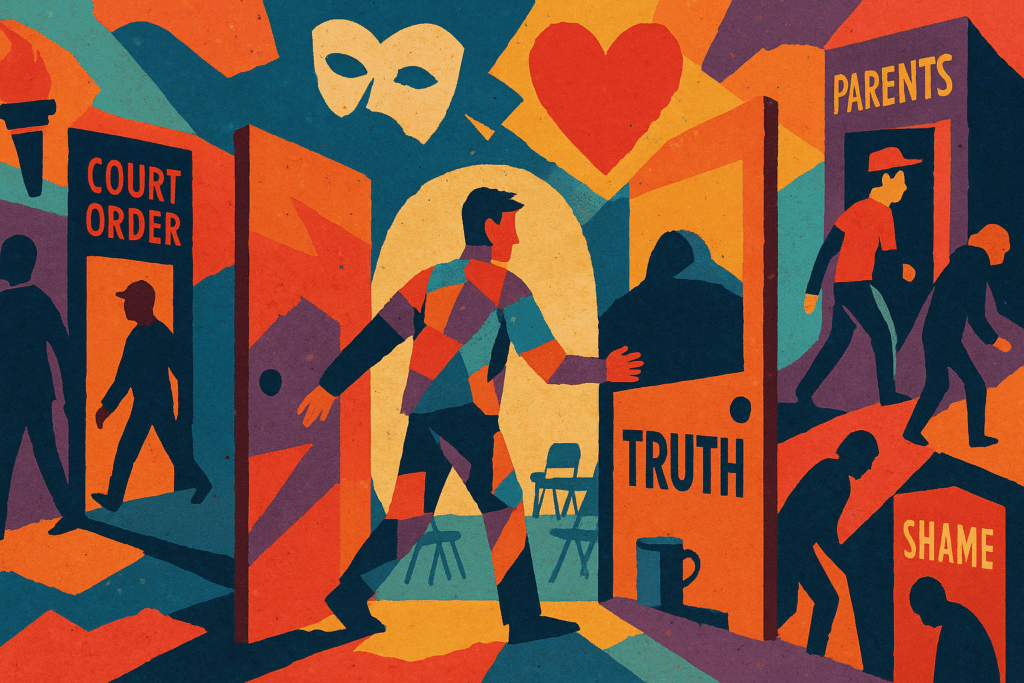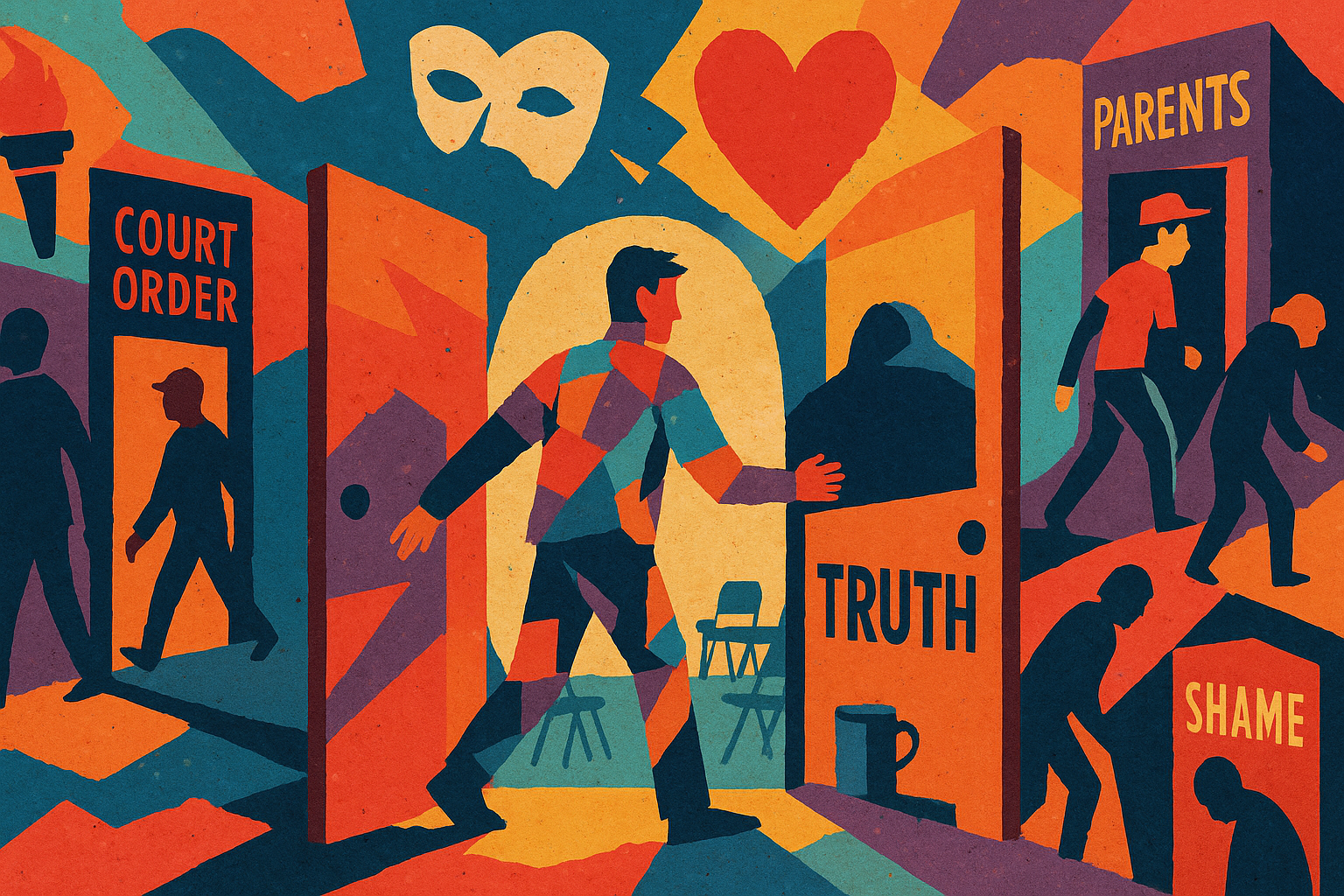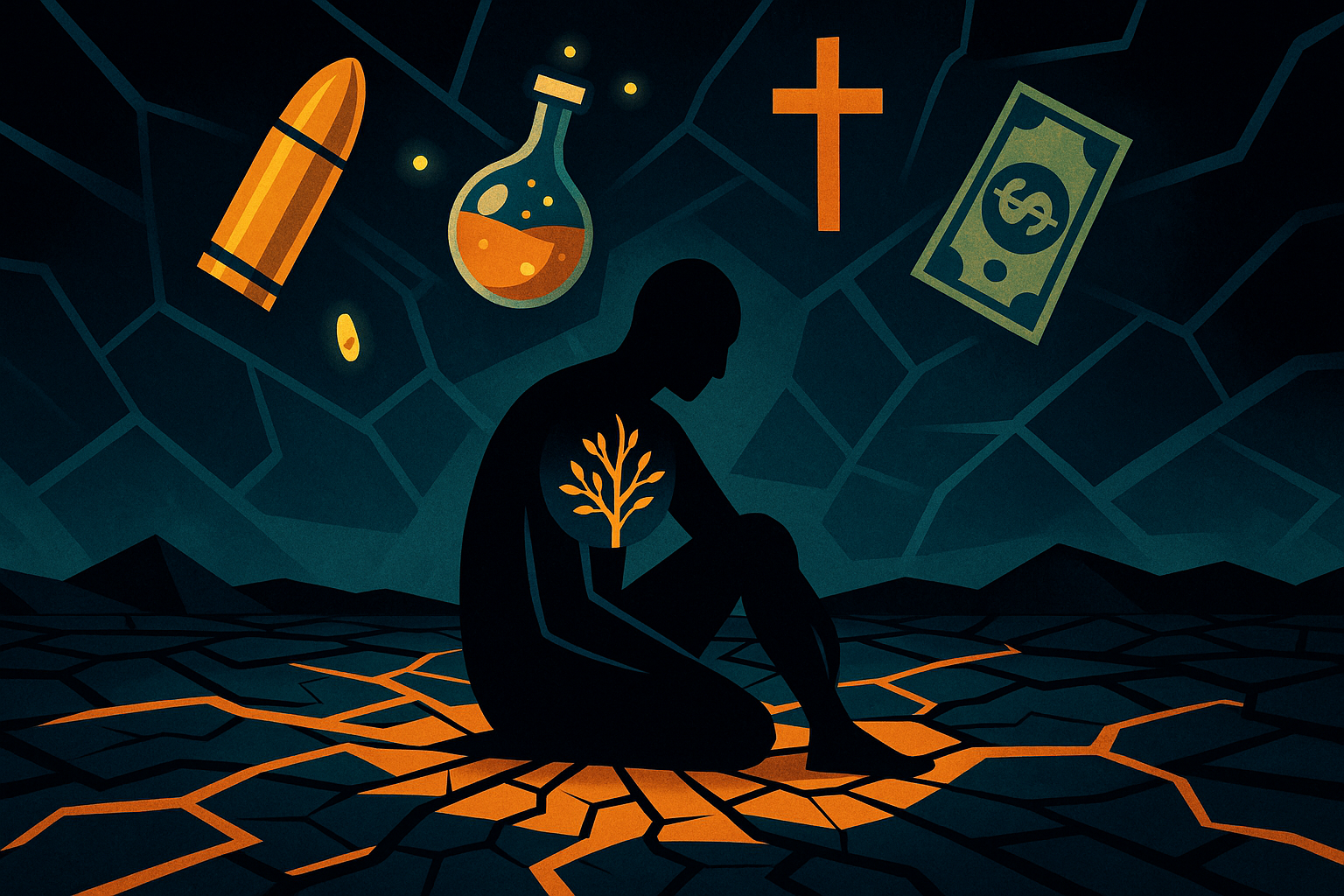READ IT TO ME: Click play to listen to this post.
“Whatever gets you through the doors is a start—after that, you can figure out how to do the work of recovery for you and not someone else.” – Anonymous
One guy admitted that he showed up at 12-step meeting because his attorney told him that it would look good in court for his upcoming trial. Another guy was a drug dealer who was essentially using the 12-step meeting to hide out. Another kid was there to appease his parents so they would pay for his tuition in the Fall so he could go back to school and party. We all have our reasons and stories about how we made it through the doors for the first time.
For me in 1990, I was a pastor at a church in Central Florida. I had just been lied to by the lead pastor that I worked for about the future role I would play. I felt so embarrassed and shameful that I cruised for a prostitute and ended up picking up a transgender person. When I recognized what had come down, I asked the person to leave my car. However, the individual would not leave until I physically forced them out of the car. I didn’t act out because of another person’s lie. I acted out to escape the indescribable shame that consumed me. That night I told my wife about what happened, and the next night I was sitting in an SLAA meeting off Dale Mabry Boulevard in Tampa, Florida, in a small building behind a row of strip clubs. In the meeting, I recognized one of my parishioners who was attending. At the end of the meeting, she greeted me saying, “I won’t tell on you if you don’t tell on me”! That was the beginning of over 4000 meetings I have since attended. What’s your story? Take time to find someone you would trust to share how you made it through the doors into a 12-step meeting for the first time.
Many of us had ulterior motives that brought us to our first meeting. In order for the meetings to make any sense, here is a short list of components that turned the tide from showing up for someone else and deciding to do the work of recovery for oneself:
1. Admit that you are broken. This is a big one! When you show up and cross the threshold of a 12-step meeting with a motive that you are doing it for someone else, none of it will make much sense. You will tend to nitpick those who share, criticize the meeting room you are in, quietly complain that the rituals are weird, and tell yourself that you cannot relate to anyone in the room! However, when you admit that you are broken, that your best thoughts and plans got you into the mess you are in, and you do not know how to get out of your own way, the lights turn on! When you recognize that you are broken and need help stopping the runaway train going down the track, your addiction, the meeting room will look more like a hospital set up to save your life.
2. Bravery: It takes courage and bravery to show up and work a 12-step meeting. Working a 12-step meeting means telling on yourself. The last thing you want people to know about you is the first thing you tell them when it is your turn to speak. It is an act of courage to ask for help. You don’t want to look like a fool. Your critical voice screams at you that you will be ripped apart if you share anything during the meeting. It takes guts to admit that you are an addict. It requires strength of a different kind to ask for a sponsor and work the steps and to be accountable to a group. Without bravery, you will shortchange your 12-step experience. It requires tenacity to hang around after the meeting, ask for feedback, and present questions about ways that you can be sober. When you do, your recovery and the meeting experience itself will come alive!
3. Embrace Vulnerability. 12-step meetings become powerful when you become emotionally naked. Many people at a meeting get caught up in impression management. They say the right things, but there is a distance between what they say and what is really going on in their lives. The vitality of a meeting dries up like a flower in the hot sun when you choose to duck and dive to avoid vulnerability. The life of a group depends upon you sharing from your heart and embracing vulnerability.
4. Hanging out after the meeting to get feedback. You can hide in the weeds in a meeting, particularly if the group is large. It’s called jumping through the hoops. Growth never happens with this approach. It is crucial that once you step across the threshold to attend a recovery meeting, you go all in. Most groups don’t allow feedback during a meeting called crosstalk. Valuable tools for growth are picked up after the meeting by talking with others who have longer sobriety over coffee or conversing in the parking lot. The wisdom shared in a parking lot after a 12-step meeting is invaluable.
5. Hunger, Humility, and Honesty. These are 3 characteristics common to those who have successfully achieved sobriety through a 12-step group. When an addict is hungry for sobriety, convenience is never an issue. They will walk to hell and back to experience relief from the anguish and pain that comes from acting out. They are not half-hearted in their attempts to work a program. They don’t argue with a sponsor. They are desperate to find any way to experience freedom from the throes of the addiction that dominates. There’s no room for a prima donna spirit. With humility, an addict intent on working a program to overcome addiction is willing to do whatever it takes to achieve sobriety. Honesty is prioritized because addicts have lied their way throughout their entire lives. Getting real means embracing honesty at all costs.
6. Ingenuity. Through the years, I have noted the importance of adaptability and creativity in recovery. The truth is, recovery support is way too expensive for most of America. The idea of paying the astronomical charge for rehab is simply out of reach for most Americans. It certainly was for me! When I got into rehab for my addiction, I had no money, rich relatives, or friends. We were all poor. My wife and I made the decision that we would propel our way into recovery with the mantra “we will hock our socks”. What this did was to advance an attitude that I would do whatever it takes to get healthy. So I began to look at what I could do. I could go to a step meeting. I could go to the Red Robin with other addicts after the meeting and listen to recovery stories, both good and bad. I could ask questions and find a sponsor. I could become coachable. I could replace “willfulness” with “willingness” to do whatever. My recovery program, which I developed, was intense. I embraced the 12 steps as a lifeline and did whatever my sponsor told me to do. I found copies of Pat Carnes’ workshop on doing the 12-steps in a gentle way. His workshop was copied over on a cassette tape that already had tape on it, so I kind of got 2 workshops in one. You just had to hone your listening skills! To address complex trauma, I learned about Marilyn Murray doing a full week intensive in San Diego—just me and her—for 8 hours a day. It was all experiential. I broke 3 of her tennis rackets doing anger work. She says to this day that I was the angriest person she has worked with! It always surprised me because I thought I was such a nice guy. We paid for that with our emergency savings. It drained the account. I have been doing my own experiential work ever since, and that was 35 years ago!
Whatever it is that got you through the doors was worth it! Maybe you have not crossed the threshold to a 12-step meeting yet. Just do it! With the right attitude, it will change your life.





